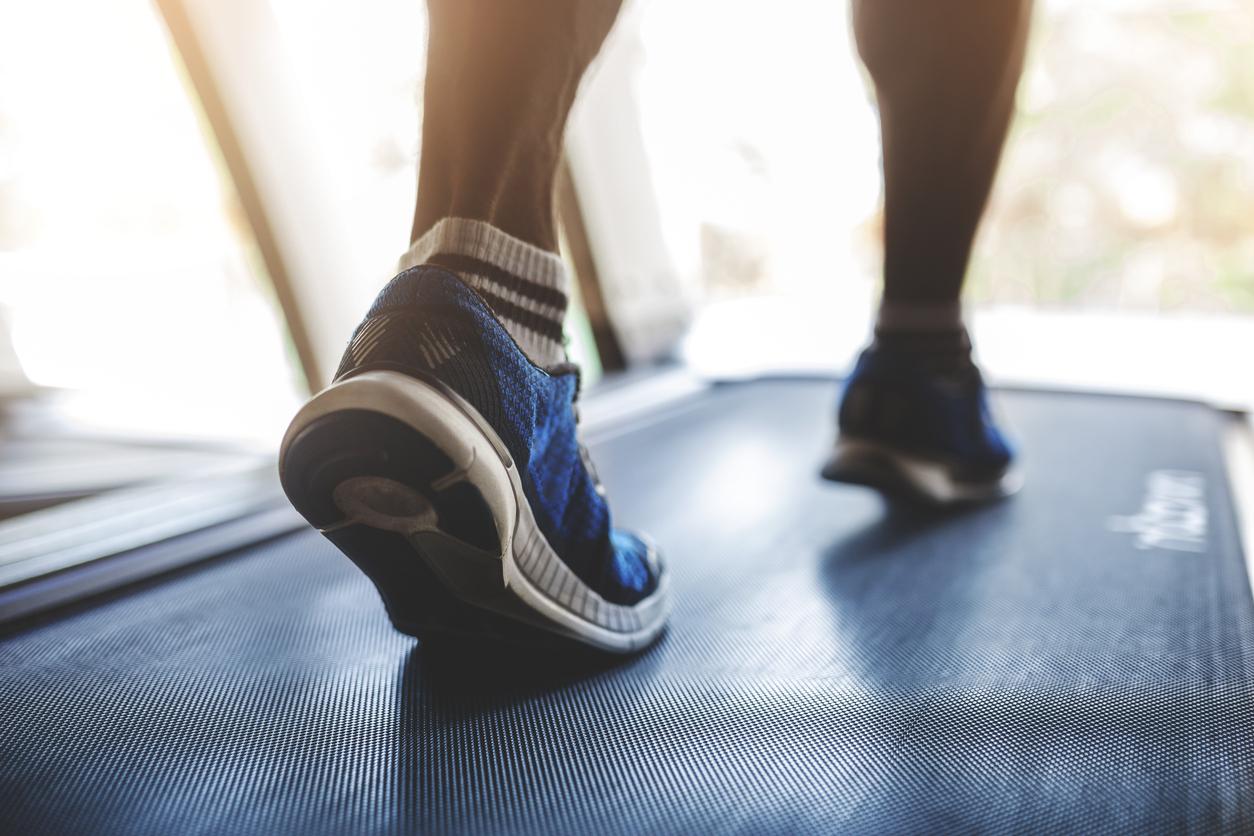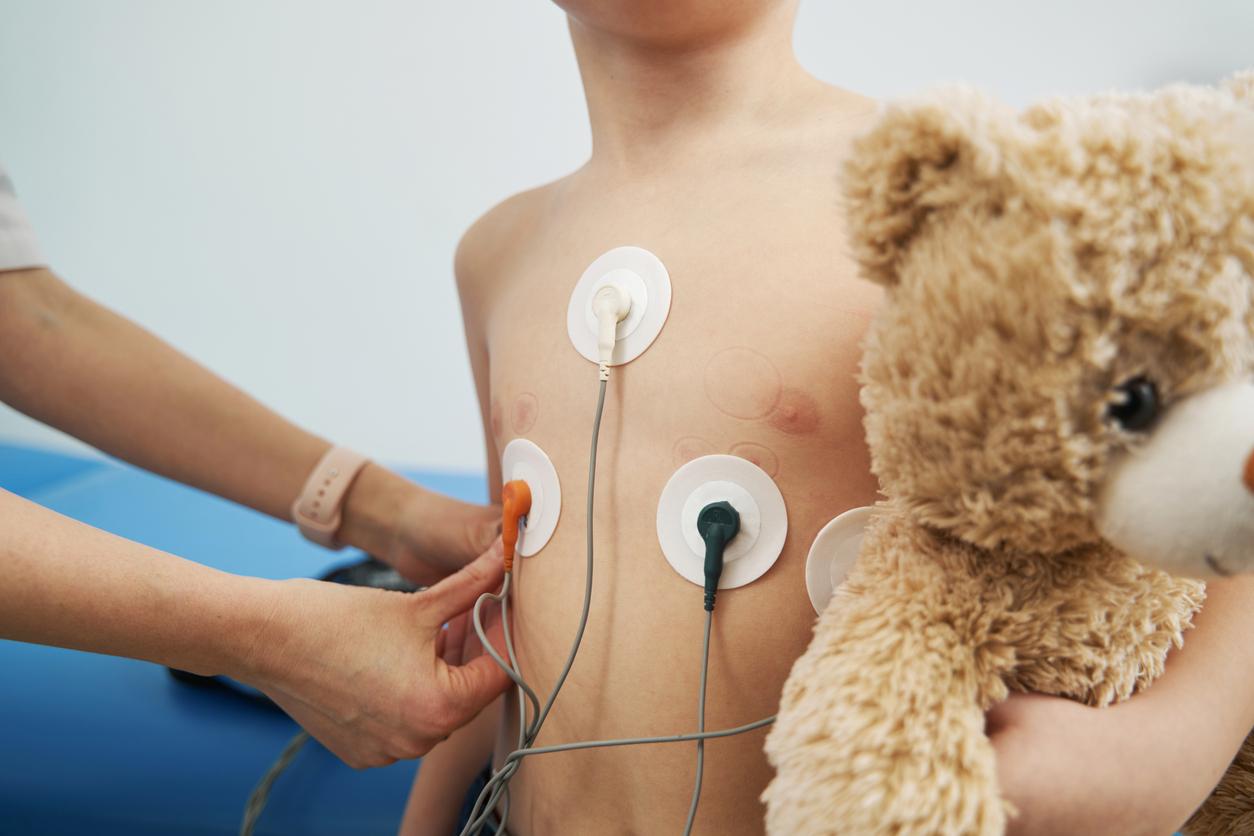Physical activity, even if only moderate, would allow people aged 40 to 79 to spend less time in the hospital, which would allow states to save a lot of money on health.

Sport is good for your health, we can never say it enough. Scientific studies continue to demonstrate the benefits of physical activity. Doing sports regularly would reduce the risk of cardiovascular disease, cancer, overweight and obesity, help to sleep better and even fight depression. According to a new study published on May 6 in the journal BMC Geriatricseven moderate physical activity would also lead men and women aged 40 to 79 to spend less time in hospital, saving countries considerable health costs.
For their work, researchers from the Department of Public Health and Primary Care at the University of Cambridge (United Kingdom) and the Epidemiology Unit of the Medical Research Council (MRC) based themselves on a study of the population survey of 25,639 men and women aged 40-79 living in Norfolk recruited from GP surgeries between 1993 and 1997.
Participants completed a questionnaire about their lifestyle. Occupational activity was assessed using a four-category question (“sedentary”, “standing”, “moderate physical work” and “heavy manual work”). Leisure activities were examined based on the number of hours per week spent cycling, attending fitness or aerobics classes, and swimming or jogging. In addition to these questionnaires, the participants were also given tests to monitor their heart rate over the years.
“Small achievable increases in physical activity”
The researchers observed that during the first ten years of the study, participants who practiced regular physical activity, even moderate, had a 25 to 27% lower risk of being hospitalized for more than 20 days or more. to go to the hospital more than seven times a year than the others. The results were similar the following ten years. Even better: of 9,827 study participants who received repeated measures, those who remained physically active or increased their activity over the years were 34% less likely to spend 20 days in hospital .
However, the scientists recognize some limitations to their study: thus the participants could be physically inactive due to a preclinical disease which could also predispose them to a subsequent heavier hospitalization. However, sensitivity analyzes excluding people with chronic disease at baseline did not significantly change the main results, they say.
“Our study provides some of the clearest evidence to date that small, achievable increases in habitual physical activity significantly reduce future hospital use for middle-aged and older people, and would significantly ease the strain on the National Health Service (NHS),” comments Robert Luben, of the Institute of Public Health and lead author of the study.
Promoting sport-health for “durable solutions”
Thus, the conclusions of this study show that the physical activity habits of the general population make it possible to predict hospital use over the next two decades. For every inactive person who started doing even a little exercise, the NHS could save around 7% of per capita healthcare spending in the UK, the researchers say.
In France, the Ministry of Sports is also encouraging citizens to do more physical activity in order to reduce health expenditure. “Since it is now widely accepted that the practice of regular physical activity reduces the risks associated with many chronic diseases, the promotion of physical activity has become a public health priority in many countries and is the subject of recommendations from international health authorities. These policies are based on economic studies based on the estimation of the cost generated by a sedentary lifestyle for the community, which have become widespread in recent years. As an extension of epidemiological studies establishing physical inactivity as a risk factor for many diseases, they provide decision-makers with tools enabling them to judge the savings potential of a strong action in favor of the promotion of sports practice. By making the socially insured person responsible in particular, the promotion of sport and health makes it possible to offer lasting solutions to public authorities concerned with ensuring the sustainability of social protection systems faced with the double challenge of the contraction of funding sources and the ‘simultaneous increase in expenditure’, is it written on his site.
Young French people do not do enough sport
According to a study carried out last year by the WHO, it is indeed the political decision-makers who must take measures to allow their fellow citizens to do more sport, especially with regard to young people. “These policies should promote the development of all forms of physical activity, including physical education, active play and recreational activities, and provide safe environments for young people to walk and cycle unsupervised.”, they conclude. However, according to this study, in France, young people are far from following the recommendations of the health authorities in terms of exercise, ie one hour of moderate or intense activity each day. Out of 146 countries studied, France is at 119and position in the ranking.
A phenomenon that has certainly worsened during confinement. According to an Ifop poll published Wednesday, May 6, the forced sedentary lifestyle would have also led the French to gain an average of 2.5 kilos in the last two months (+2.7 kg for men and +2.5 kg for women). Among respondents who gained weight, 65% said they had never played sports during confinement and 11% had given less time to preparing balanced meals. This could be explained, according to the authors of the survey, by “the explosion of time to devote to children (care activities, homework help, leisure, etc.) from when schools close”. In addition, 20% ate more, 42% consumed more alcohol and 23% more chocolate than before. Indeed, the stress linked to the anxiety-provoking and frustrating situation of confinement has pushed many people to adopt addictive behaviors. “Nibbling was accentuated by anxiety related to a general situation encouraging the search for sweet foods (biscuits, chocolate, cakes, etc.) who reassure”, explain the authors of the study.
.















